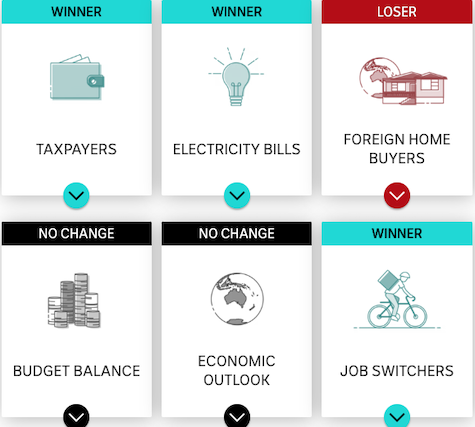6 simple rules will ensure a deed can be executed in all states
There are six simple rules that will ensure a deed is executed properly in every Australian state, says a leading superannuation legal consultant.

.
Bryce Figot, special counsel for DBA Lawyers, said each Australian jurisdiction has its own laws that govern the proper execution of deeds.
“While it could be possible to execute a deed without following all of these six steps, why take unnecessary risks?” he asked.
“You never know which Australian jurisdiction might apply to a deed”.
For example, in Booth v Cantor Management Services Pty Ltd (Unreported, Supreme Court of South Australia, Bochner J, 18 March 2016), a deed provided: “This Deed is governed by the laws of the State or Territory of Australia in which this Deed is executed and all interested persons accept the jurisdiction of the Court of that State or Territory”.
“The deed was executed in Queensland. Therefore, one might think that this would have been a Queensland case. However, the case was heard in the South Australian court system,” Mr Figot said.
Instead, however, Judge Bochner J decided that the clause quoted above was: “… non-exclusive. It does not expressly provide that any action in relation to the fund must only be commenced in the State in which the deed was executed”.
“The case illustrates that unexpected outcomes can occur. It is difficult to predict with real confidence which jurisdiction will apply. Therefore, it is best to have a practice that will satisfy ALL jurisdictions,” said Mr Figot.
RULE 1: Don’t try to execute a deed electronically
Up until recently, no Australian jurisdiction allowed for a deed to be executed electronically. Instead, they all included the general law requirement that a deed must be on paper (or parchment or vellum).
Some Australian jurisdictions have updated their legislation to allow for electronic execution of deeds. However, there is still risk involved.
Namely, the Victorian Electronic Transactions (Victoria) Act 2000 (Vic) allows a deed to be executed electronically. However, it includes ambiguous requirements such as that the method used was ‘as reliable as appropriate’. This is yet to be interpreted by the courts.
Similarly, where a corporation executes a deed under the Corporations Act 2001 (Cth) (CA), equivalent requirements apply. For example, under s 110A(2)(b)(i) of the CA, an electronic method of signing can only be used if it is ‘as reliable as appropriate for the purpose for which the information was recorded, in light of all the circumstances, including any relevant agreement.’
Furthermore, most Australian jurisdictions do not even have legislation that allows for deeds to be executed electronically. As it stands today, this includes the ACT, NT, SA, Tasmania and WA. Therefore, a problem could arise where there are signatories to the deed that are currently located in those Australian jurisdictions.
RULE 2: Ensure the deed says ‘executed as a deed’ and ‘signed, sealed and delivered.’
At general law, in order to constitute a deed, among other things, a document must be sealed.
Sealing means affixing a wax or wafer seal, a rubber stamp or any other impression as a seal – see Electronic Rentals Pty Ltd v Anderson (1971) 124 CLR 27 [18].
Naturally, it is rare to see literal sealing in modern times. However, the absence of literal sealing is not necessarily a problem. This is because each jurisdiction has legislation providing that deeds no longer require sealing so long as additional criteria are satisfied. Therefore, it is important to satisfy those additional criteria.
However, the exact additional criteria vary in each Australian jurisdiction.
For example, in NSW, ‘[e]very instrument expressed to be … a deed …, which is signed and attested in accordance with this section, shall be deemed to be sealed.’ (See s 38(3) of the Conveyancing Act 1919 (NSW).) This requires, among other things, wording such as ‘executed as a deed’.
In Victoria, different additional criteria apply. In Victoria, ‘[a]n instrument executed by an individual … expressed to be sealed by that individual … shall … take effect as if it had been so sealed.’ (See s 73A of the Property Law Act 1958 (Vic).)
Therefore, it is best practice to include both phrases ‘executed as a deed’ and ‘signed, sealed and delivered.’ This helps ensure that the document is taken to be sealed, and thus can constitute a deed.
RULE 3: Ensure that each individual executing the deed has an adult independent witness
In general law, there is no requirement for a deed to be witnessed.
However, many Australian jurisdictions have legislation requiring a deed to be witnessed. For example, in NSW, ‘A deed is sufficiently signed by a person if … the signature is attested by a person who is not a party … to the deed …’ (See s 38(1A) of the Conveyancing Act 1919 (NSW).)
Therefore, it is best to ensure that each individual executing the deed has an adult independent witness.
RULE 4: When printing a PDF before signing, print the ENTIRE document
The leading Australian book on deeds is Seddon On Deeds. This book is now in its second edition. In the first edition, the author wrote:
The practice in the United Kingdom appears to be to separate the text of the deed and the execution page but to keep them together in all correspondence. The final version would comprise two PDF documents. It is possible that an Australian court could hold that such a practice is not sufficient for proper execution. A safer practice in Australia is to send the whole deed electronically as one document, and for it to be printed out as a whole and executed as a counterpart.
The second edition does not repeat this warning. Instead, it describes a more complex alternative that the United Kingdom Law Society approves.
However, it seems unclear if the UK alternative would be sufficient in Australia. Also, the UK alternative involves having law firms involved in the execution. Therefore, we still heed the warning from the first edition.
RULE 5: Put the date on the deed
There is no need to date a document for it to constitute a deed. This has been well established for over 400 years. See Goddard's Case (1584) 2 Co Rep 4b and a more recent case such as Juric-Kacunic v Vaupotic [2013] NSWSC 41 [49].
Nevertheless, there are practical reasons to put the date on the deed. Financial institutions like to see the date of execution on a deed. For stamping purposes, some Australian jurisdictions require that a deed be dated. Also, having the date on a deed helps to evidence of when a deed was in force. As such, dating the deed is prudent when executing.
STEP 6: Keep the full original deed
A trustee’s most fundamental duty is to comply with the terms of the trust. Those terms are typically contained in a deed. Therefore, a trustee needs to be able to produce those terms if questioned. The simplest way to produce those terms is to show the full original deed.
Many are surprised to learn that a photocopy or a scan of a signed deed still constitutes a lost deed. Naturally, the photocopy or scan typically constitutes good evidence of what the lost deed provided. However, it is still a lost deed. For example, in Sutton v NRS(J) Pty Ltd [2020] NSWSC 826 a photocopy of the signed deed existed. However, the original signed deed was lost. Therefore, a court application was necessary in order for the trustee to be justified in administering the trust on the basis of the photocopy.
Bryce Figot, DBA Lawyers
26 September 2023
www.smsfadviser.com























